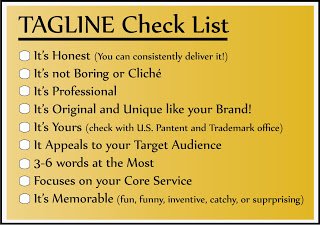TRANSLATION - Work placements and internships
gaining some practical experience in translation is important to start a new career in translation or localisation volunteering, work placements and internships can help with this.
Although you might be starting your career now, it is more likely that you might already have years of work experience behind you. So, you might be wondering if work placements or internships are appropriate for you, or even feasible? You might have decided that they are not, but perhaps you should reconsider.
Whatever your background and your expectations of translation or localisation, it is useful to research it, as you might find some useful information about the translation industry and discover jobs that you might want to consider.
Work experience
So, why is work experience important? why is work experience useful and what do employers think about it? Do mature students have an advantage?
many recruiters say::
mature students have extra experience which puts you at an advantage to someone who has gone straight from school to university. Your commitment, ambition, and drive will be noted as long as you are prepared to talk about your choice/change of career path.
So, if you already have experience in a different field, it is important that you are able to articulate why it is you have decided to change careers.
Internships and work placements are a very interesting way to get to understand first-hand what jobs are involved in the translation industry, and how large language service providers (LSPs) operate.
Building your work experience can help you:
- Decide what career paths you want to explore and make contacts who can help you in your career.
- Enhance your CV and develop your transferable and employability skills.
- Get a realistic idea of the responsibilities, skills and challenges of different types of roles and gain insight into different sectors.
Different types of work experience
Internships
An internship is a fixed-time work experience placement which gives you a chance to enhance your employability and career prospects. Graduate internships may be full or part-time and can last between a few weeks and a few months. Some internships are paid, and some can be done remotely.
Secondments
Secondment is temporary paid work in a different area from where you usually work.
Placements
Work placements are a period of work experience that is part of your degree. They give you the chance to apply your skills in a work setting.
Insight programmes and open days
Insight days and programmes usually involve a range of activities such as work shadowing, networking and presentations with the option to meet subject matter experts and ask questions.

Other options
Another way to learn about opportunities, job sectors and a way to get your ‘foot in the door’ is to look for paid employment, such as:
- temporary roles
- junior positions
- portfolio working
- freelancing
- project work
If you are looking to change your career you could consider applying for ‘junior’ or ‘assistant’ positions to develop your sector knowledge ‘on the job’.
How to get work experience if you're already in work
If you’re working or have other commitments it can be difficult to take on a placements or secondment, especially if you’re looking to change careers or sectors. Consider other options such as volunteering, portfolio working or using annual leave for short-term projects.

Finding work experience
like job opportunities, work experience opportunities can be advertised or organised informally.
Make sure any work experience you arrange suits your career plans and what you can realistically achieve. Be clear about your career aims and how they fit with those of the employer.
Find 'hidden' work experience opportunities
Not all work experience opportunities are advertised or are even formal opportunities. For example, some small and medium size enterprises may rely on word of mouth or speculative approaches.
- Exploit existing opportunities at work – if you’re already working, you may find you can volunteer or do work experience in a different role with your current employer.
- Network – make it known to your contacts that you’re looking for work experience.
- Follow companies on social media to keep up to date with what they are doing.
Making the most of your work experience
When you’re looking for opportunities, consider what you want to get out of the experience and your own circumstances.
Good employers will provide quality experience that will develop and support students and graduates. You should be able to carry out ‘real’ work and projects to help you enhance your employability and academic skills.
What to do during the experience
- Make sure you have a mentor or supervisor to contact if you need to.
- Ask for feedback during or after completing your placement.
- Be proactive and seize opportunities to make contacts and network with colleagues.
What to do after the experience
- Ask for feedback after completing your placement.
- Thank the organisation and mentor for the opportunity.
- Reflect on your roles, activities and projects.
- Note down any outcomes and results.
- Update your CV with your work experience details.



